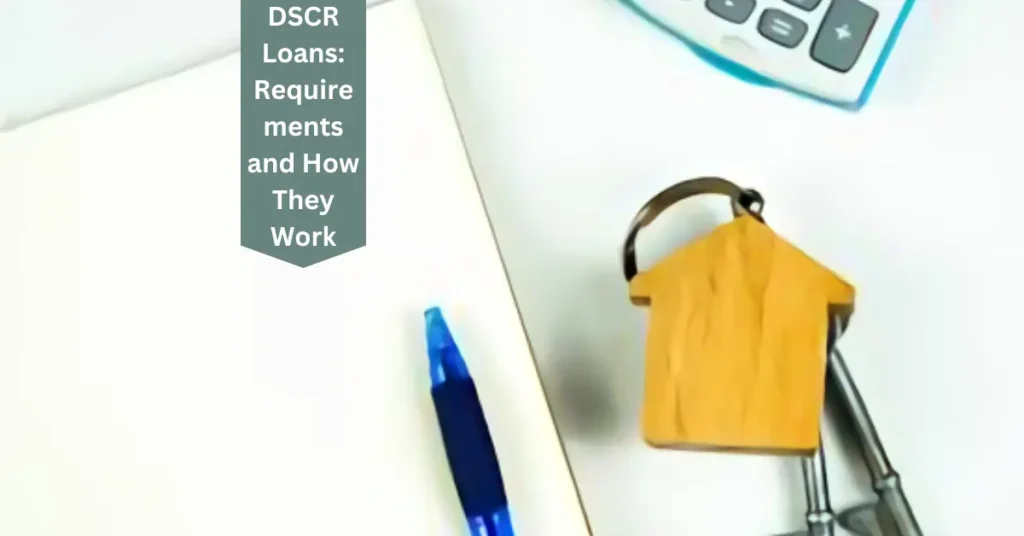Debt Service Coverage Ratio (DSCR) loans are a type of financing commonly used by real estate investors. These loans focus on the property’s cash flow rather than the borrower’s personal income. Understanding DSCR loan requirements and how they operate can help investors make informed decisions.
What is DSCR?
The Debt Service Coverage Ratio (DSCR) is a financial metric that measures a property’s ability to generate enough income to cover its debt obligations. It is calculated by dividing the net operating income (NOI) by the total debt service, which includes both principal and interest payments. A higher DSCR indicates better financial health and a greater ability to repay the loan.
- Formula: DSCR = Net Operating Income (NOI) / Total Debt Service
A DSCR of 1 means the property generates just enough income to cover its debt payments. Lenders typically prefer a DSCR higher than 1 to ensure there is a buffer for unexpected expenses or vacancies.
DSCR Loan Requirements
To qualify for a DSCR loan, borrowers must meet several requirements, primarily related to the property’s financial performance and some personal financial criteria:
- Property Income: The primary requirement is proof that the property generates sufficient income to cover debt payments. Lenders usually look for a DSCR of at least 1.25, meaning the property should generate 25% more income than the amount needed to cover the debt obligations. This cushion ensures the loan remains serviceable even if the property’s income decreases slightly.
- Credit Score: While the borrower’s personal credit score is less critical compared to traditional loans, a higher credit score can still benefit the borrower by potentially securing better loan terms and interest rates. Lenders typically prefer a minimum credit score of around 620-650.
- Down Payment: DSCR loans often require a significant down payment to mitigate the lender’s risk. This down payment is usually in the range of 20-30% of the property’s purchase price.
- Property Appraisal: An independent appraisal of the property is necessary to verify its market value. This appraisal helps ensure the loan amount is justified based on the property’s value.
- Financial Documentation: Documentation of the property’s income, such as rent rolls and profit and loss statements, is required to assess its financial performance. Additionally, lenders may ask for a detailed operating budget.
How DSCR Loans Work
DSCR loans are designed for income-producing properties, such as rental units or commercial real estate. Here’s how they typically operate:
- Income Focus: Unlike traditional loans that emphasize the borrower’s personal income and debt-to-income ratio, DSCR loans primarily focus on the income generated by the property itself. This allows investors to leverage properties that are financially robust, even if their personal income is not substantial.
- Loan Purposes: DSCR loans can be used for various purposes, including property acquisition, refinancing existing loans, or funding renovations and improvements. This flexibility makes them an attractive option for investors looking to grow their real estate portfolios.
- Loan Terms: The terms of DSCR loans are generally structured to align with the property’s cash flow. This can include interest-only payment periods and longer amortization schedules to ensure the debt service remains manageable. DSCR loans usually have long-term fixed interest rates over 15 or 30 years. DSCR loan rates are usually around 0.5% to 2% higher than conventional mortgage rates.
Pros and Cons of DSCR Loans
As for every loan type, DSCR loan has pros and cons too.
Pros:
- Easier Qualification: Borrowers can qualify based on strong property income, making it accessible for investors who may not have high personal income.
- Flexible Terms: Loan terms can be tailored to match the cash flow characteristics of the property, providing more flexibility in managing finances.
- Potential for Larger Loans: Loan amounts can be larger, as they are based on the property’s value and income potential rather than the borrower’s personal income limits.
Cons:
- Higher Down Payment: The significant down payment requirement can be a barrier for some investors.
- Potentially Higher Interest Rates: DSCR loans may come with higher interest rates compared to conventional loans, reflecting the increased risk to lenders.
- Dependence on Property Income: The loan’s viability is heavily dependent on the property’s income, which can fluctuate due to market conditions, vacancies, and other factors.
In Summary
DSCR loans offer a unique financing solution for real estate investors by emphasizing the property’s income over the borrower’s personal financial situation. They provide an opportunity to leverage income-producing properties for growth and expansion, though they come with their own set of requirements and risks. Understanding the intricacies of DSCR loans can help investors make informed decisions and effectively use this financing option to their advantage.
